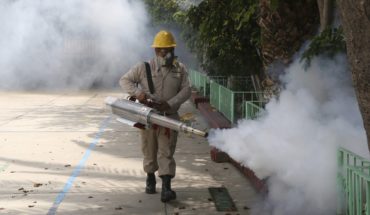
The Government’s decision to send a reform for the postponement of the elections of 10 and 11 April for 15 and 16 May has not only been the target of questions on the part of the opposition over the lack of health and economic measures to accompany the process. Political analysts have also focused on the lack of reforms, adjustments to the process to prevent a drop in participation and thus a “delegitimity” of the ongoing constituent process.
In an interview at El Mostrador en La Clave, the director of Latinobarometer, Marta Lagos questioned the Executive’s delay in taking letters on the matter, and argued that “the fact that it was postponed almost 15 days before the election, shows that this is done at the last minute, that it is not done well”.
“We have done a very thorough analysis of what was the electoral participation of 25 October compared to 2017 and the communes where electoral participation in the plebiscite increased are all large communes of the Metropolitan Region. If these communes are affected in their ability to go to vote due to quarantine, voter turnout collapses. Here it can happen – even on 15 May – what happened in France last year when voter turnout fell to 40 per cent and that would mean a delegitimity of the constituent process,” dij0 alluding to the case of municipals in the European country in June 2020, in the first wave of the pandemic, which recorded a historical abstention of around 60%.
University academic Diego Portales, Claudio Fuentes, agreed that the postponement was a correct decision, but “now the debate is whether it is appropriate on May 15 and 16 or to run the date a little longer, because 5 weeks will eventually not be enough if other very strong measures are not taken that this Government has not taken to control the pandemic , such as traceability or financial aid”.
In his view, there was also the dilemma of participation at stake, taking into account that in the plebiscite “participation was not as relevant in regions, in rural sectors and in poor sectors was also not so high, and indeed participation in a quarantine context could be greatly diminished”.
Regarding the delay in decision-making, the UDP analyst warns that “a scenario with little participation gives more certainty to the incumbents, those in power, those who have a network, a clientele and an electoral machine. And fewer people going to vote is a piece of the electoral calculation that may be playing in this chess.”
Adjustments
In Marta Lagos’ view, the postponement of the dates leaves several points to settle and “an enormity of things to change”, such as that of the presidential primaries.
“On May 4, registration for the presidential primaries is supposed to be post-elections on April 11, there was supposed to be clarity regarding nominations, and now it’s pre-municipal. That’s going to have to run, too,” he said.
Another point is the electoral “integrity” of the campaigns, which in its view has been “totally ignored by the political class, and the capacity of candidates who do not have funding”, as well as resolving “what about the incumbents, with the mayors who run out of access to their offices”. In addition, it posites that the “State will have to open the wallet” to allow the extension of candidates’ campaigns with fewer resources.
Sources further agree that there are other palliative proposals, in addition to “eventually giving some subsidies to campaigns that are independent or smaller”, such as opening the court to “radio electoral strips, something that has been said many years ago and has never wanted to enter”.
Lagos adds the issue of the electoral strip on television should be completely restructured across regional strips. This should be complemented by a large, state-run information campaign, precise, because “to this day we have more than half of the population who do not know there will be an election.”
The director of Latinobarometer adds that other measures can be taken, such as reopening the pattern. “There we have deadly sins that are weighing on us. In a large number of first world countries people can register up to 3 weeks before and here are months. Perfectionthe political system and political rights have not had the attention required for the system to function well and demand on 18 October is a demand for political rights, among other things,” she adds.
Another pending, he mentions, is the lack of legislation on early voting. “Here is negligence regarding the improvement of political rights and that has to do with the mechanics of elections that have not been touched at all in their mechanism. Today’s Servel is like a legless elephant, it has no money to do what it should do, not even an audit of the standard,” he said.





